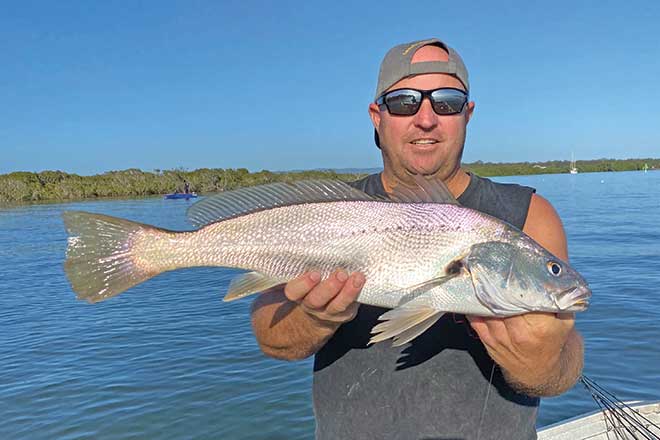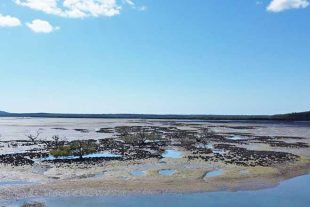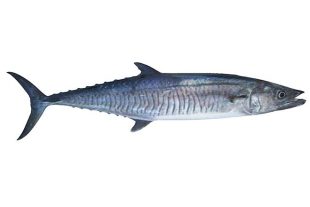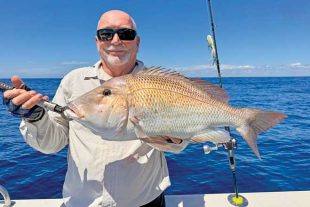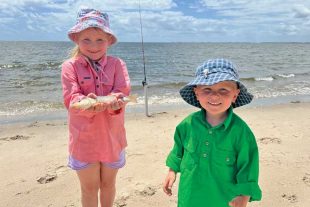February is generally one of the hottest months of the year in southeast Queensland. rivers
It can produce some wild weather, such as heavy rain and storms, so we’ll have to wait to see what Mother Nature feels like sending our way as the month progresses.
At the time of writing, the rivers were still fairly brown from the recent rainfall.
Though they are clearing up quickly and the bait is starting to go back into the rivers and creeks.
Mud crabs were starting to improve and there were a lot of small prawns flicking around the smaller drains.
Hopefully we’ll get a little more rain this month to keep the water slightly dirty.
This helps to concentrate bait into a smaller area, instead of spreading throughout the entire system.
Where there is bait, there will be fish, so concentrations of bait make things easier when trying to find spots where the fish are feeding.
Don’t let the brown water put you off fishing an area.
To see how much salt is in the water, I always taste it as I’m pushing up the creek.
If there’s salt on the top, there will be plenty of fish down deep in the holes.
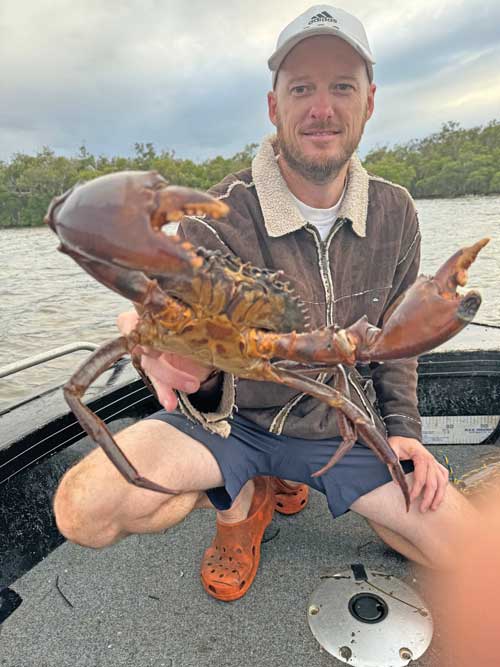
I also keep an eye out for any surface activity from baitfish such as mullet and prawns.
When saltwater is pushing back into a system, mullet will be the first to follow it in.
Also, keeping an eye on the sounder in the deeper holes will let you know if the bait is pushing back up.
Small bull sharks will be in large numbers this month too.
They are a lot of fun to catch and are surprisingly very good on the plate when looked after correctly.
Mud crabs are a popular target at this time of year.
I crabbed a fair bit leading up to Christmas, when there were plenty of white floats on the river.
Share farming is still an issue, with a lot of people complaining about their pots being ‘checked’ at the boat ramp.
Disappointingly, it’s a common problem.
If you don’t want your pots checked, you need to stay close to them or put in the effort to hide them well.
The worst system I’ve come across for crab thieving grubs is the Caboolture River.
I’ve gone to extremes to hide my pots in there and they still get checked occasionally.
Unfortunately, it is still one of the better mud crabbing rivers around Brisbane.
If you spend half a day crabbing there on a good tide, you should be able to go home with at least a couple of muddies.
Fresh bait is the most important key to nailing a feed of mud crabs.
I like to use a mixture of fish frames and chicken frames.
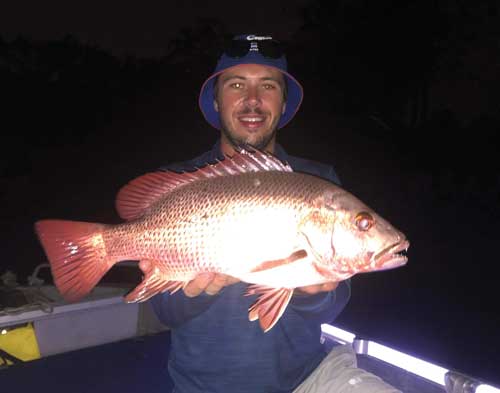
You don’t need a lot in each pot, especially if you’re checking them regularly.
The type of fish frame doesn’t seem to matter too much, however oily fish such as mullet and tuna do seem to perform better than others.
I recently used some pearl perch frames and they worked very well.
I think chicken also helps a lot, so it’s worth putting some in together with the fish frames.
There are still plenty of small jewfish in the rivers.
They will be pushing upstream with the bait schools.
They prefer to hang around the deeper holes and rock bars.
And there should be a couple of better models over the legal size among them.
Grunter are another species that like to push into a system as the water cleans up.
Mangrove jack should be angry this month and they feed very well in dirty water.
It’s easier to get away with a heavier leader when the water is discoloured.
Flathead have been making a welcome appearance at this time of year over the past couple of seasons.
All the river mouths should be worth a cast with soft plastics.
Last year we caught a stack of good fish on 92mm Pro Lure Clone Prawns and small paddle tails around the 3-4” size.
That’s it from me this month.
Hope to see you on the water.
 Bush ‘n Beach Fishing Magazine Location reports & tips for fishing, boating, camping, kayaking, 4WDing in Queensland and Northern NSW
Bush ‘n Beach Fishing Magazine Location reports & tips for fishing, boating, camping, kayaking, 4WDing in Queensland and Northern NSW

